
Our friends at Modern Huntsman paid a visit to Matt and Sarah at their working homestead, North Bridger Bison. What started as a conversation about life on the open ranges of Montana turned into a conversation about where our food comes from and why that matters. If you eat, this is something you need to read. And don't forget to check out Modern Huntsman's podcast for the full conversation.

Growing up in suburban Chicago and pursuing a career in law, it seemed unlikely that Matt Skoglund would end up a bison rancher in southwest Montana. But fortune favors the bold, and after moving to Montana in 2008 and working in environmental conservation for several years, Matt and his wife, Sarah, decided –now or never – to pursue the dream of a regenerative ranch while their children were still young. Starting from scratch and leaning on neighbors, mentors, and friends, they have since built an incredibly respected, meaningful, and successful business that is connecting people to their food, improving the land, and bringing about some thought-provoking conversations about livestock’s role in conservation, the rampant myths about a plant-based lifestyle, and what it means to be a conscious consumer. To put it plainly, customers can stake their claim on a full, half or quarter bison from the herd, and Matt personally harvests each one in the field, even providing photo updates along the journey. The meat is then dry-aged, processed, boxed, and shipped to the customer’s door, from their family to yours.
In the shadow of the North Bridger Mountains, we visited Matt and Sarah to see more of it for ourselves, hear about life on their bison ranch, and have an in-depth conversation about the complex world of food sourcing. While such an incredibly nuanced topic required a full length podcast to discuss, what follows here is an excerpt that dives right into some of the interesting stuff.

Byron Pace: How do you feel about the consistent push to paint cattle farming as entirely negative? It seems to be the common narrative across the planet these days.
Matt Skoglund: There's a saying now that I really like, which is, "It's not the cow, it's the how." Because there's some people that think that all cattle or cows are bad. Nothing could be further from the truth. People think that bison are these magical unicorns that are perfect. And that's why that saying is so great, because it comes down to management. You can have amazing cattle ranches, like all of our neighbors here, and you can have bad bison ranches or vice versa. It comes down to management. One of the coolest and most rewarding parts of this experience has been getting to know our neighbors and seeing their operations, how hard they work, and the amazing ranchers they are. We're just super grateful for that. I just always want to point out that cattle are not evil – not even close. Cattle are great, if done right. It’s the same with bison. They can be great if done right, and can be horrible for the land if done wrong.
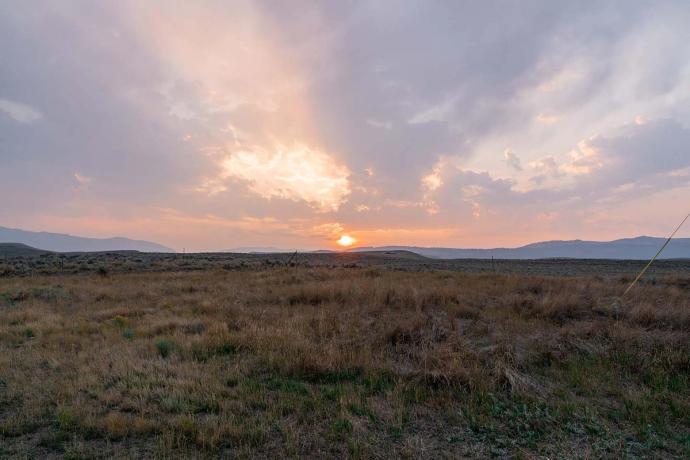
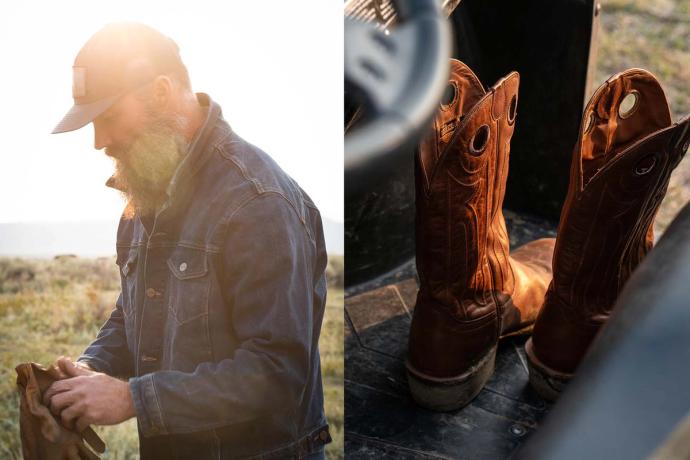

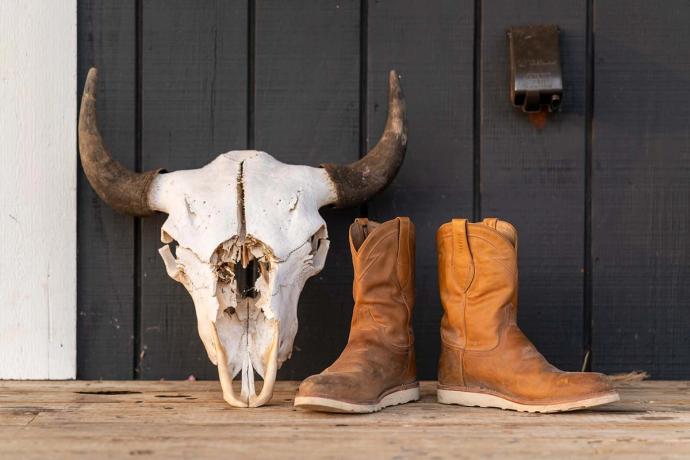
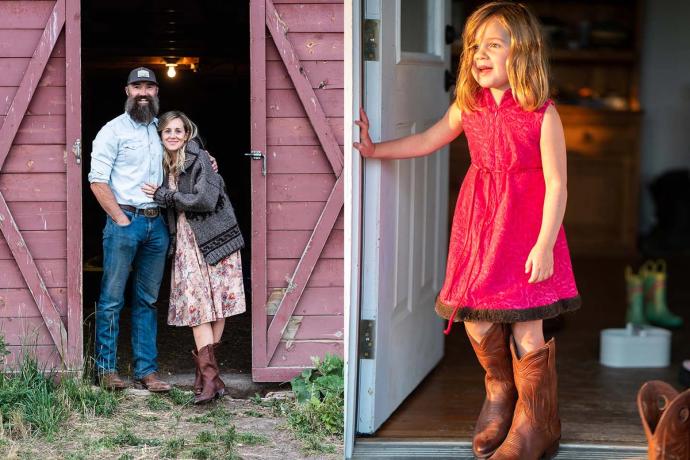
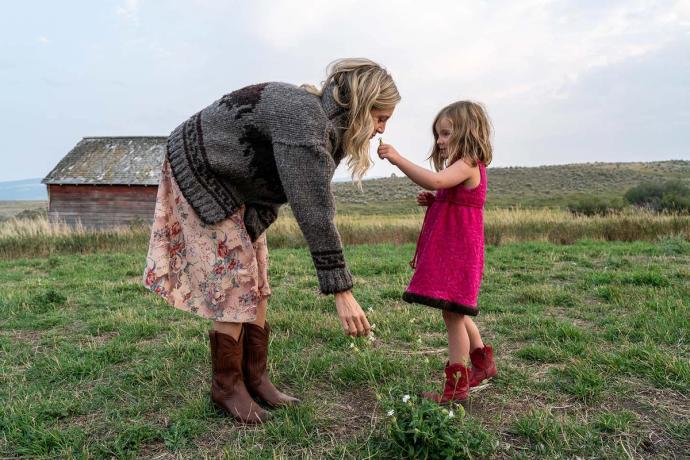
BP: Which goes very much against the "Let's stop having any kind of beef and meat production. Let's just all eat lettuce." How do you view the push to plant based foods?
MS: I think it's fair to say that the popular narrative being put forward by the general media and public is that meat is bad, and plant-based is good. There are meatless Mondays. Epicurious said they're going to no longer publish beef recipes. Eleven Madison Park, one of the fanciest restaurants in the world, just went vegan. It's just constant. I chuckle in the grocery store when I see very obviously plant-based foods with a giant plant-based logo on it? And you're like, "Oh, that bread. Is there a species of animal that they make bread from?" It's become a knee jerk reaction, that if you slap a plant-based label on it, then it means it's good for the environment. Meat is bad, it’s not meat, and therefore it must be good.
But the science that keeps coming out is showing us that nothing could be further from the truth. Of course, like everything in life, it's nuanced. Here we are in Montana, the Western United States, in a landscape that evolved with millions of grazing animals like bison, elk, deer, and pronghorn for thousands of years. Removing animals from this landscape is completely unnatural.
There's this soil scientist, Nicole Masters, who says she hates the word sustainable, because to sustain something is just to keep it as. To regenerate something is to make it better. We've had some high school kids come out to the ranch. And I'll say, "So in about an hour, I'm going to go out and shoot a bison in the head with a rifle. That may sound pretty brutal and intense, but I'll make the case to you that – and just let this soak in, and we'll talk about it after – but that what I'm going to do is more ethical, humane, and environmentally friendly than the average broccoli you find at your grocery store." And they look at me like, "This guy's completely nuts." But the reality is that if you're raising broccoli on a commercial scale, you're at war with everything that wants to eat your broccoli, which is all sorts of stuff. And out here, the more bugs, worms, and bees, the better, rather than spraying every living thing with pesticide. With ranching, you're working in sync with nature, not fighting against it.
BP: Which might sound very grandiose and people... "Yeah, of course he's going to say that." But it's legit. That is what's happening here. It's so unlike most of the agriculture that exists.
MS: Regenerative agriculture is a hot buzzword right now. I'm not a farmer. I've never been a farmer, but I think it's much easier to achieve regenerative goals on a ranch than it would be on a corn farm, or insert your favorite fruit or vegetable.

BP: What about the notion that moving away from animal based protein is better for the planet?
MS: The idea that killing an animal is a bad thing and is wrong goes against history, evolution, nature, and life. There's a woman named Diana Rodgers who writes a lot about this stuff. She has a podcast called Sustainable Dish, and just wrote a book called Sacred Cow. I haven't read it yet, but she has really good messaging around this, just really thoughtful things that make you think a lot about life and death. You can't have life without death and you can't eat food without spilling blood. Seeing this messaging constantly about “eat plant-based, eat plant-based” and this idea that plant-based is good and meat is bad, it's just been driving me crazy because right now we are seeing species like bees and butterflies really struggling, and a huge reason for that is the farming of fruits and vegetables.
Environmental groups are saying, "Eat plant-based for the planet." And then the next day it's, "Help us save the bees and the butterflies." It makes me want to pull my hair out. Plant-based foods kill all sorts of stuff – and then here in this area and on our ranch and on our neighbors’ ranches, they're teeming with bees and butterflies and life.
BP: Because you have an intact ecosystem.
MS: Yes. We're not plowing up the land to plant corn and spray the living daylights out of it and then harvest it and have a bunch of the soil disappear. We're building topsoil. We're providing wildlife habitat for all sorts of stuff. That's just reality. That's what's really happening, but this plant-based narrative is so successful because consumers aren’t being told the full story.
You can go to Whole Foods, buy your Impossible Burger made of unicorn dust and rainbows. It's going to make everything ok. Nothing was harmed in making it – and it feels great. The only problem is it's simply not true. But it keeps going and going and going. People with really big platforms are continuing to sell the plant-based myth, and if we think vegan burgers are going to save the planet, we're screwed.

BP: How does your operation help to re-connect people with their food?
MS: Like I said, we're very passionate about what we do and part of our mission is connecting people to where their food comes from and about the impacts we have and eating with your eyes wide open. We sell directly to consumers. We sell to individuals, and families – by the quarter, half, or whole animal.
I field harvest each bison on the ranch myself. Then I typically field dress it and then take it to our processor, where it's ultimately dry aged and then cut, wrapped, boxed, and frozen. Then we either deliver it or ship it.
On the day of a field harvest I take a picture of the herd when I'm driving out there. And then after I kill the bison, I take a picture of it on the ground. Nothing gory or bloody – but a tasteful picture of a dead bison on the ground. And then I take a third picture at the processor after it's been skinned, sawed down the backbone, and split in half. One side, shoulder side out, other side, rib side out – and then I'll email the customers and say, "Yesterday, I field harvested your bison on the ranch. It was a beautiful day, and everything went smoothly."
BP: What's the reaction been?
MS: It's interesting. Some people don't reply, so I don't know. But many people have replied by saying, "

I have tears in my eyes right now. I've never felt so connected to my food. I've never really engaged with food like this or thought about it like this." Or some people just say, "Wow. This is really cool. Looks amazing. I cannot wait to get my hands on that!"
BP: So what's the future for your business? Where are you headed?
MS: I worked for an environmental group for 10 years, and I’m a very passionate environmentalist and conservationist – and there's just a lot of BS out there right now around food and meat. We feel strongly about the concept of eating with your eyes wide open. We're all going to have an impact, so let’s just be honest and intentional about it. Sarah and I have talked about our future a fair amount recently because we've had a couple potential different opportunities come our way over the past few years that we decided were not good fits for us, and it's forced us to think about our direction with the ranch. We do two things here. Or I should say, we try to do two things really well here, which is raise bison as well and as in sync with nature as possible. Then number two, provide amazing, amazing meat.
That's our focus. We are very clear, that's our North Star. That's what we're doing. That's where we're putting our energy, and so I guess my dream would be for us to continue doing what we're doing right now and focusing on those two things and having it go well. That's it. Those are the two things we want to do.
To hear the full conversation with Matt about their North Bridger Bison operation, make sure to listen to the podcast episode HERE.